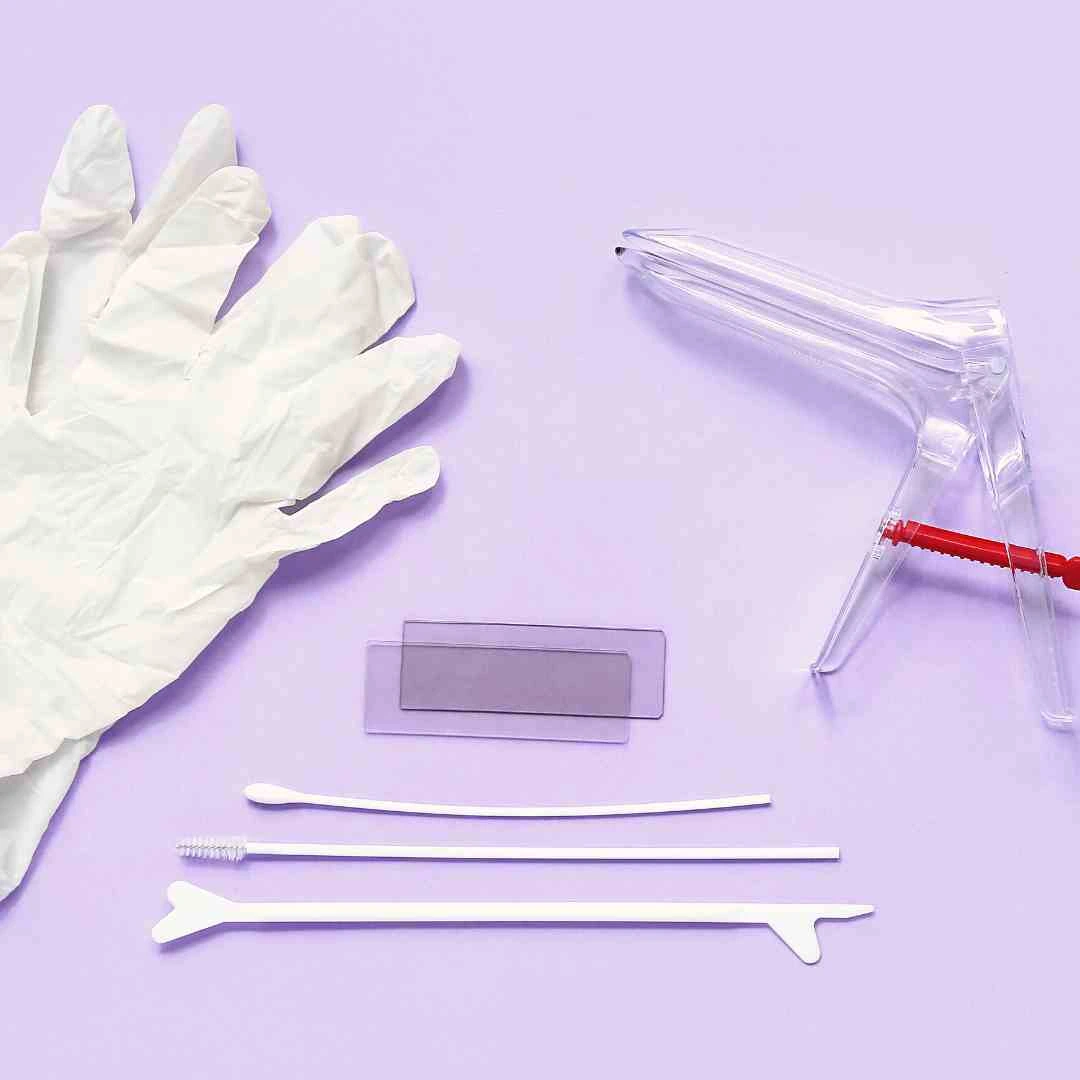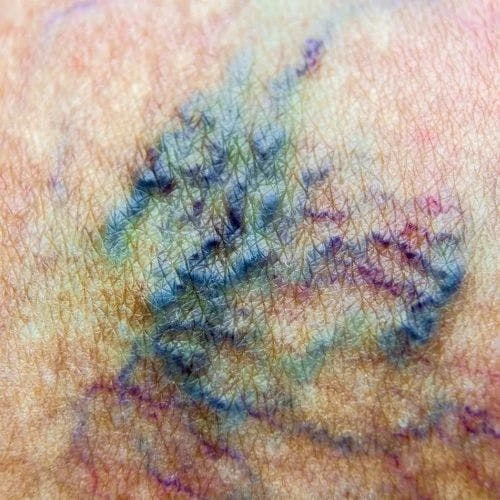How To Prepare For A Pap Smear: Cancer Screening Test
Many people wonder if they need to prepare for a pap smear. The pap smear test is an important text done in a doctor’s office to test for precancerous cells that could lead to cervical cancer. While it is a fairly routine test, it doesn’t mean that it’s easy to go through. Some people may be more nervous than others. Being prepared can help.
How To Prepare For A Pap Smear: Mental Preparation
Mental preparation is the most important part. You will want to understand how the test works. Also, if you have any questions for your healthcare provider, its important to think about those ahead of time.
For women planning their first Pap smear, it’s recommended to have the test within three years after becoming sexually active or by age 21, whichever comes first.
Questions To Ask Before Your Pap Smear
When you are going in for your first pap smear, you may be nervous. Because of this, you may want to write down some of your questions that you may have for your healthcare provider. This way if you want to ask questions about sexual activity, your menstrual cycle, or about the HPV test you can.
Questions you may consider asking:
- When will your next pap smear be? Your next pap smear will depend on the results of your test and your specific risk factors. Your doctor will be able to tell you this once they have that information.
- What happens if there is an abnormal pap smear result? In many situations an abnormal result means more testing and usually a colposcopy.
- How can you be safe during sexual intercourse? It is always a good idea to ask your doctor on how you can be safe.
- Will you also be doing a breast exam and pelvic exam during the visit? An annual exam will usually include these as well.
- Will you also be testing me for HPV? The human papilloma virus is what is linked to cervical cancer. In some situations it is automatically tested for, but not all. So, ask your doctor.
How To Be Less Nervous For A Pap Smear
The best way to be less nervous is to understand what is going to happen during the pap smear. During the procedure, a healthcare provider uses a soft brush to collect cells from the walls of the vagina and cervix. It’s crucial for obtaining the most accurate results that patients avoid using vaginal medicines, spermicidal foams, vaginal creams, and birth control foams before the test, as these can obscure abnormal cells.
If an abnormal Pap test result is found, further testing may be necessary to determine the next steps, which could include follow-up tests or treatments to address abnormal cell changes or HPV infection. Understanding your medical history and any potential risk factors you may have is an important step in managing your overall health and reducing your risk of cervical cancer.
Here is what you can expect during a pap smear:
- Preparation: You will undress from the waist down and puts on a medical gown. If you are also having a breast exam then you will also be asked to take your bra and shirt off.
- Positioning: You will lay down on an exam table with your feet placed in stirrups.
- Speculum insertion: The healthcare provider carefully inserts a lubricated instrument called a speculum into the vagina. This gently separates the vaginal walls, allowing better access to the cervix.
- Cell sample collection: The healthcare provider uses a small brush or spatula to collect a small sample of cells from the surface of the cervix. This process may cause mild discomfort but should not be painful.
- Sample preservation: The collected cells are preserved in a liquid solution or on a glass slide, which is then sent to a laboratory for analysis.
- Speculum removal: After the sample is collected, the healthcare provider removes the speculum and you can sit up on the examination table.
How To Prepare For A Pap Smear: Pap Smear & Periods
Yes, you can have a Pap smear during your period, but it’s not usually recommended. The reason is that menstrual blood can interfere with the results of the Pap smear, making it harder for the lab to analyze the cells collected.
If there’s a lot of blood, it might obscure the cervical cells. This could lead to an inconclusive test result, which could mean having to repeat the test.
However, if your menstrual flow is very light, some doctors might still proceed with the Pap smear, especially if there’s an urgent need for the test.
The best time to schedule a Pap smear is midway between your periods, generally 10-20 days after the start of your last period. This is because having your test during your menstrual cycle can affect the accuracy of the results.
If you have an appointment scheduled and start your period, contact your healthcare provider for advice. They may suggest rescheduling, or they may decide to go ahead with the test based on your specific circumstances.
How To Prepare For A Pap Smear: Physical Preparation
There is a question mark after this because almost every health care provider will tell you there is nothing you need to do to physically prepare for a pap smear. Your doctors are only concerned with your well being and this is what they will be focused on. But, many people still have questions so here are some of the common ones that people ask.
Should I Shave Before A Pap Smear?
There is no need to shave your vulva before a pap smear. It will not affect your pap smear results. If you feel more comfortable shaving, then you should do so, but the pap test results are not affected by pubic hair.
Can You Have Sex Before A Pap Smear?
While it’s not strictly forbidden to have sex before a Pap smear, it’s generally recommended to not have sex 24 to 48 hours before a pap smear according to the American College of Obstetricians and Gynecologists (ACOG). This is because sexual activity can:
- Cause irritation or inflammation of the cervix and vagina, which can make it difficult to collect an accurate cell sample.
- Introduce sperm or lubricants into the vagina, which can obscure abnormal cells on the Pap smear.
- Increase the risk of an inconclusive or false-positive test result.
It is recommended that women avoid douching, spermicidal foams or jellies, and vaginal creams or medications for 24–48 hours before a Pap smear. This will minimize the risk of obscuring cervical cells with sperm or lubricant.
If you do have sex before your Pap smear, it is important to tell your doctor so they can interpret the results in light of this information. They may still be able to perform the Pap smear, but they may also need to reschedule it for a later date if they are concerned about the accuracy of the results.
Can You Have Sex After A Pap Smear?
Yes, you can have sex after a pap smear. Be sure to follow safe sex practices to limit any exposure to sexually transmitted infections. Remember that a pap smear does not test for sexually transmitted infections like gonorrhea or chlamydia.
Should I Shower Before A Pap Smear?
This is also a personal choice. If you feel more comfortable, then you should. But if you don’t have time to, then it doesn’t matter. The most important part is actually getting to the doctor’s office to have this important screening test done.
What Should I Wear For My Pap Smear?
You will want to wear clothes that are easy to change in and out of. This will make it easy on the day of to get into the medical gown. You will be full undressed underneath the gown.
Does The HPV Vaccine Prevent Cervical Cancer?
The HPV Vaccine can reduce your risk of cervical cancer significantly. However there are many different types of HPV and not every single one is included in the vaccine. Pap testing still remains important for disease control even if you have been vaccinated.
How To Prepare For A Pap Smear: Summary
A Pap smear, also known as a Papanicolaou test, is an important test recommended by the American Cancer Society and the American College of Obstetricians for the early detection of cervical cancer. This test checks for the presence of abnormal cell changes on the cells of the cervix, which is the opening of the uterus at the top of the vagina.
The presence of human papillomavirus (HPV), a sexually transmitted disease, is one of the most common causes of cancer deaths among women in the United States. Regular Pap smears can identify precancerous changes of the cervix and HPV infection, which are key risk factors for developing cervical cancer.
In order to prepare, understand the procedure. You will also want to try to schedule it for the middle of your menstrual cycle so you are not bleeding. Finally, avoid having sex one to two days immediately before the test.








